Prosecuting crimes 24-7
Crime doesn’t stop when office hours stop. That’s why, at the CPS, we work 24 hours a day, 365 days a year to respond to cases referred to us by the police. This is where CPS Direct, our out of hours service, comes in.
Who we are
CPS Direct is made up of over 270 CPS staff, including experienced prosecutors and operational delivery colleagues, who are available through the night, at weekends and bank holidays to respond to cases referred to the CPS by the police.
We’re based all over England and Wales and are pioneers of working from home, having done so since before the pandemic.
We deal specifically with cases where the suspect cannot be released on bail because they pose a risk to the public – it’s our job to respond quickly to the most serious crimes and dangerous offenders.
Hear from Tracy, Chief Crown Prosecutor of CPS Direct, about how her department operates.
What we do
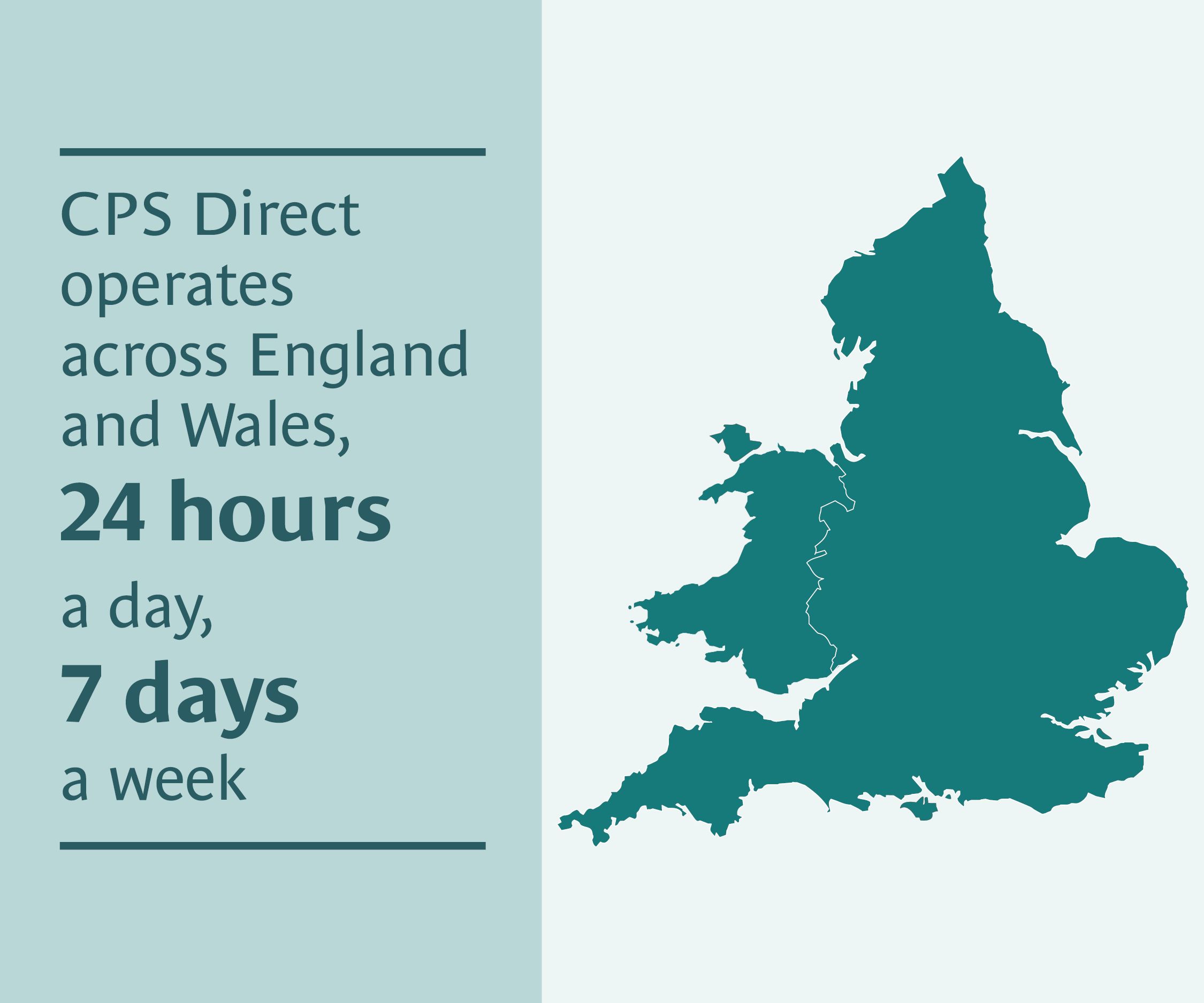
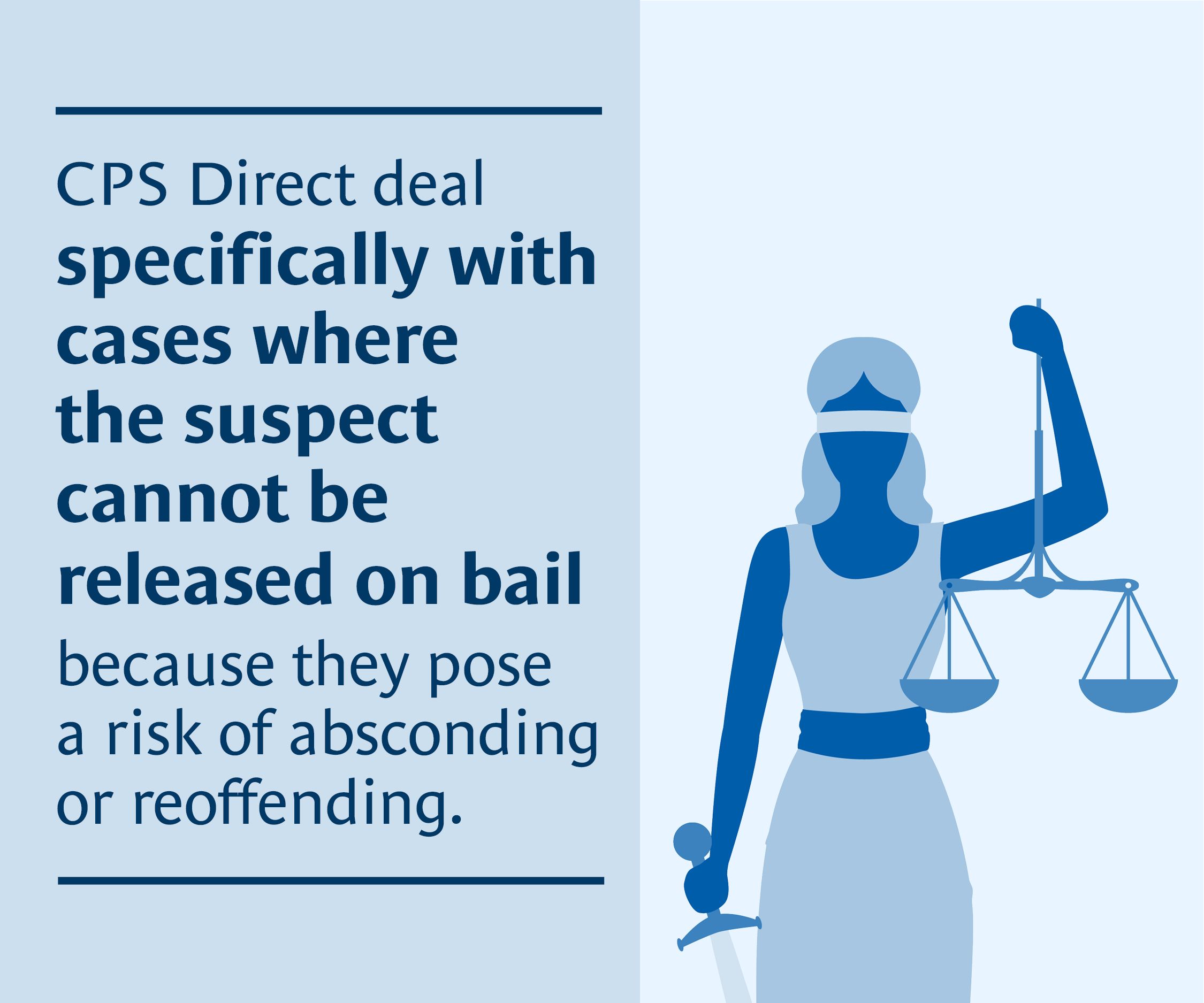
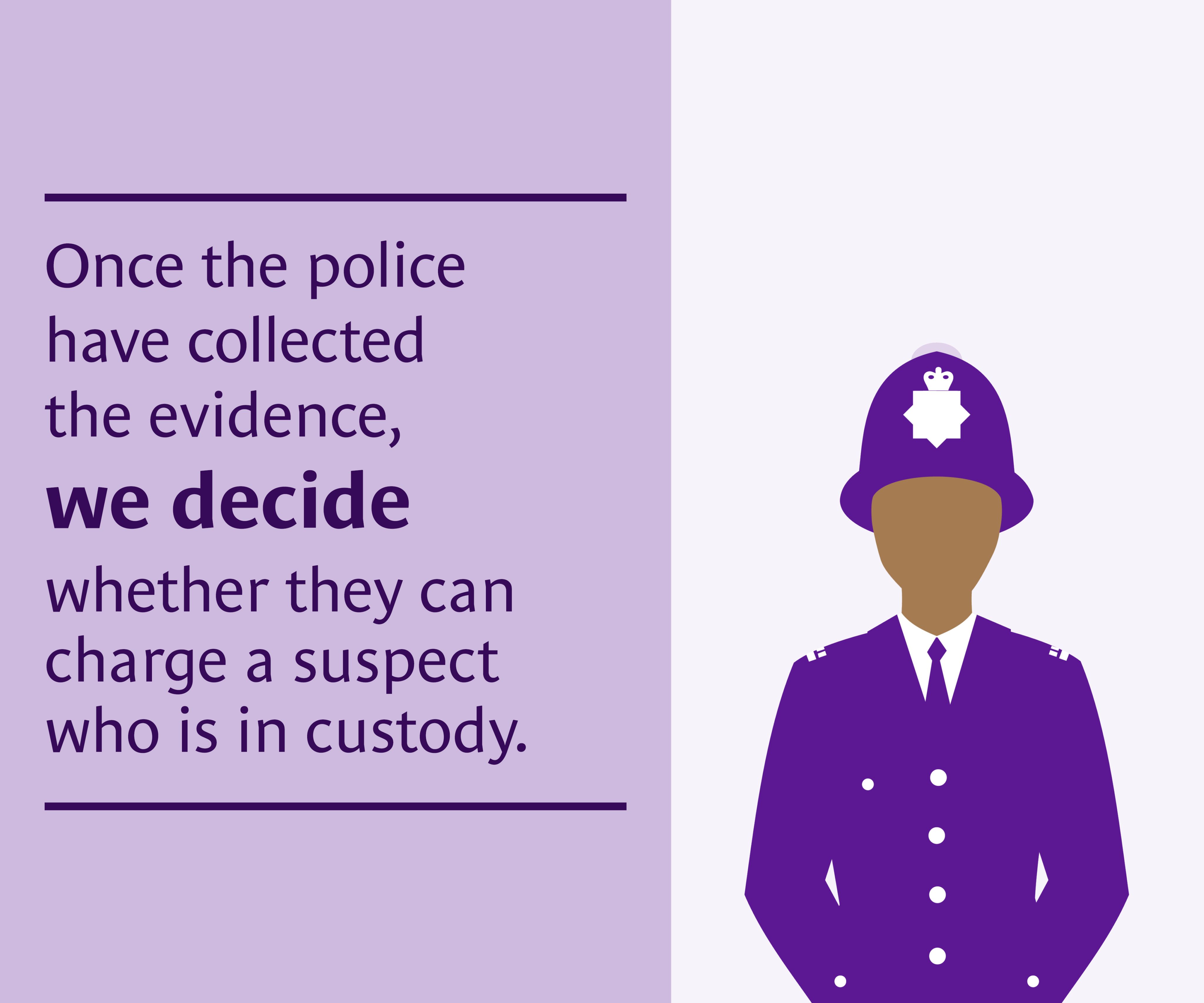
A CPS Direct prosecutor was the first to charge David Carrick, a serving Metropolitan Police officer, with rape, at 3am when the police sent the case for review. The decision to charge Carrick at this early stage was a crucial step in securing justice. This encouraged a further 12 other victims to come forward, which revealed the full extent of Carrick's offending. You can read more about how we built the case for prosecution in our press release.
The charging decision for the first cyberflashing case in England and Wales came through to a CPS Direct prosecutor. Nicholas Hawkes, a registered sex offender, was charged at 1am on 11 February 2024 after being reported to police for sending unsolicited photos of his genitals to a 15-year-old girl and a 66-year-old woman on 9 February. This was the first application of the new crime of cyberflashing that came into effect on 31 January 2024, as part of the 2023 Online Safety Act. You can read more about this case in our press release.
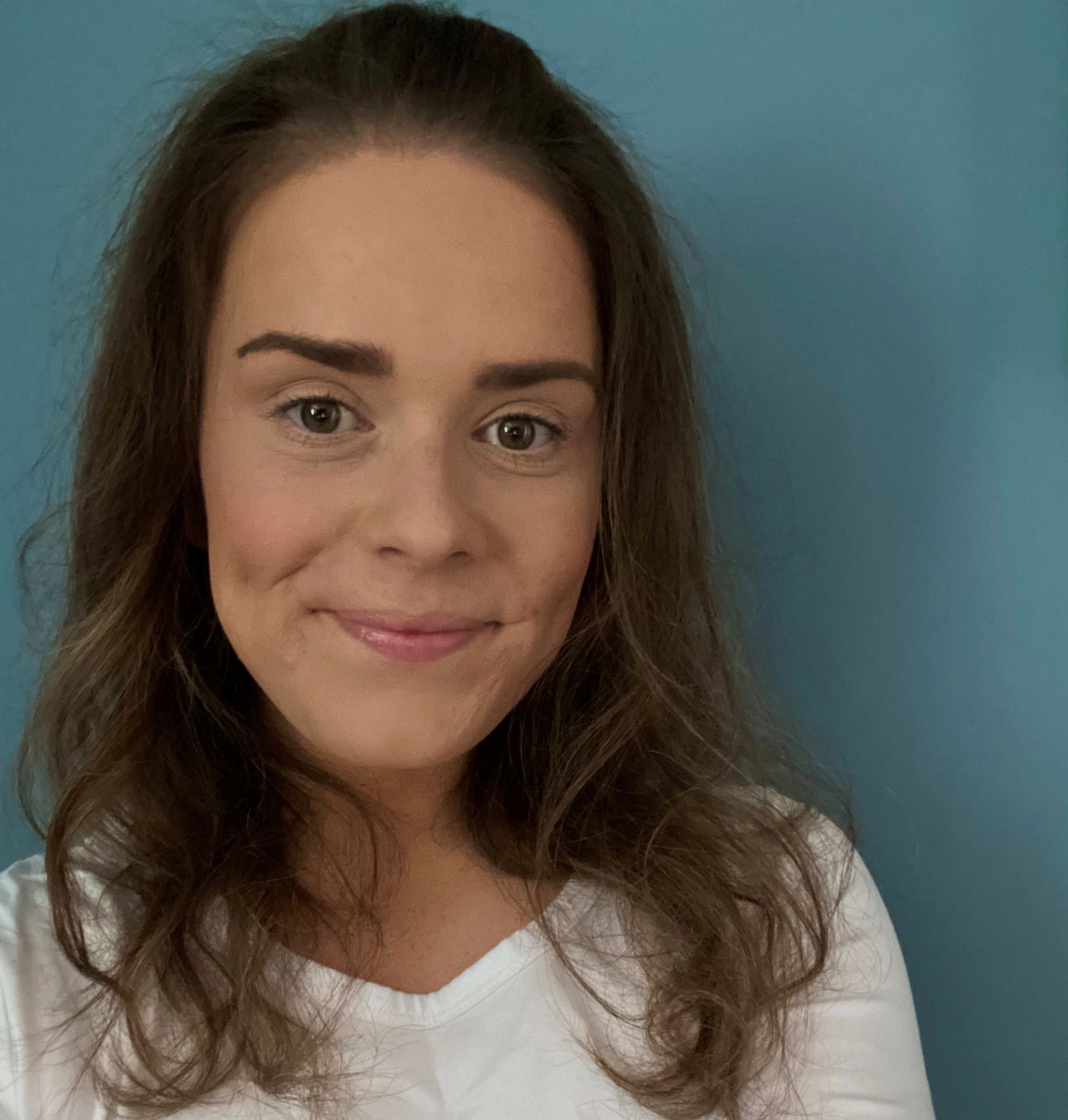
Hannah, Charging Manager for CPS Direct
Hannah, Charging Manager for CPS Direct
What happens when a case comes in
When a case is referred to us by the police, our triage team are the first point of contact. Hannah, a charging manager in our triage team explains:
“I receive cases through the digital system. First, I scan them to find out how long the suspect has been in custody. Police have a limited time that they can legally detain a suspect so it’s important that we prioritise cases carefully.
“I then check that we have all the relevant information and that all the documents are in order – working with the police to make sure it’s all there - before allocating the case to a prosecutor.”
A rewarding job
“It’s rewarding knowing that, because of my work, a prosecutor is looking at the case as soon as possible when the clock is running. Each case that comes to us is a real team effort between the police and the CPS - together we try to make each shift as successful as possible for the result that evening, but also for the prosecution of the case going forward so we can deliver justice for victims.
“Some evenings can be quieter, and others are extremely busy as our work is directly dependent on the current volume of crime – no two shifts are ever the same!”
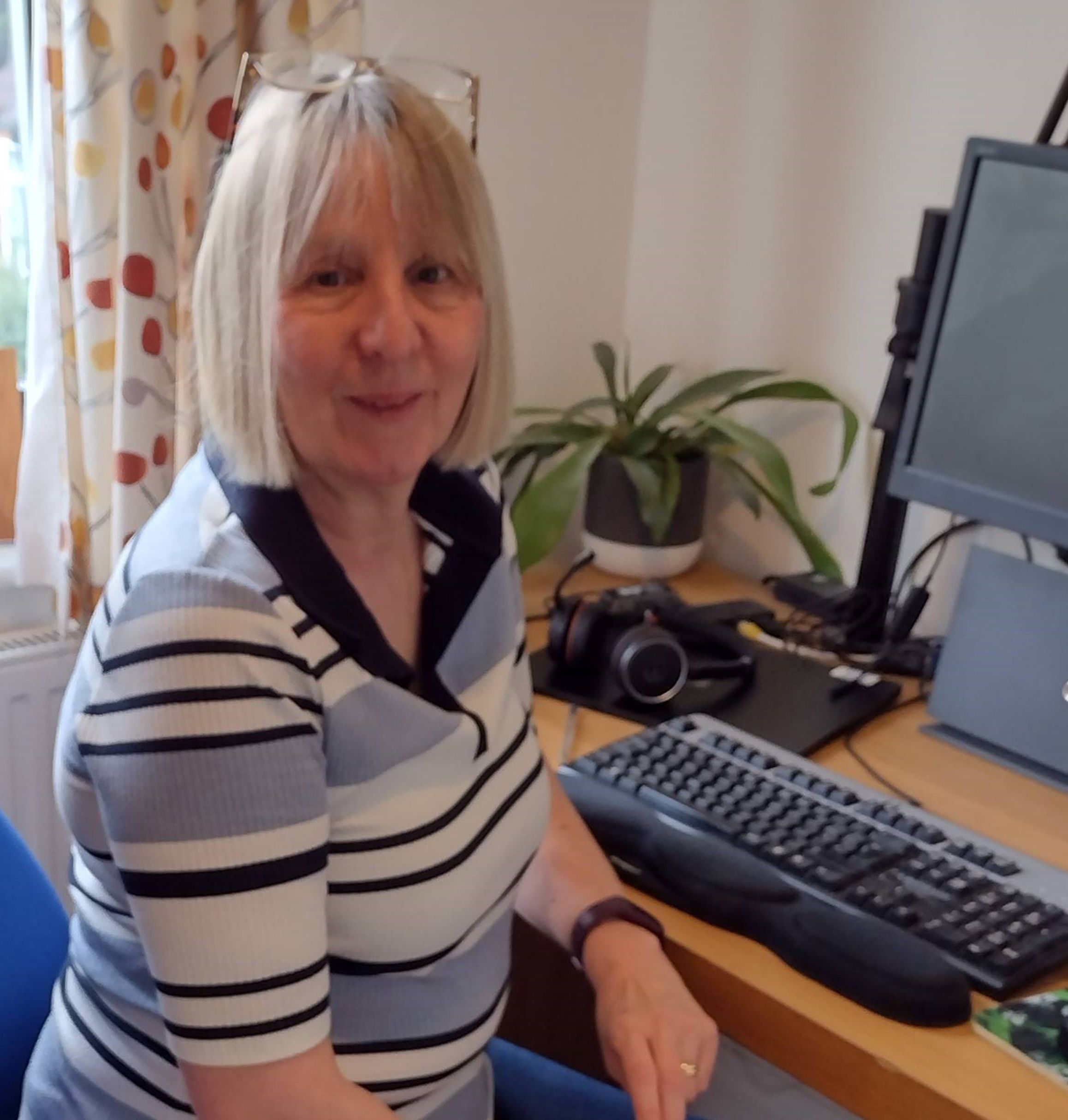
Sheila, Duty Prosecutor for CPS Direct
Sheila, Duty Prosecutor for CPS Direct
Reviewing the evidence
Sheila, a duty prosecutor in CPS Direct tells us what happens next.
“My first job is to review all the evidence. Evidence takes a range of different forms – forensic evidence, 999 call recordings, CCTV and body worn video footage from police officers.
“At CPS Direct we deal with cases in real time and there can often be a lot of case material, especially when dealing with the most serious and complex cases. In these cases, I’ll speak with the police officer to find out what case material we can prioritise to make an informed and timely decision and charge the right offender with the right offence at the outset of the case.
Applying the legal test
“First we ask, is there enough evidence against the suspect to provide a realistic prospect of conviction. That means, is a court more likely to find the defendant guilty than not. To answer this, I assess the reliability and credibility of the evidence – asking whether there’s enough evidence to prove all the elements of the offence and whether it’s admissible in court.
“If this first test is passed, I then consider whether it is in the public interest to charge the suspect with an offence.
“Once I’ve decided based on our legal test, I’ll speak to the police officers to let them know whether they can charge their suspect or whether they need to gather more evidence."
“I am passionate about encouraging people from all walks of life to consider a career with CPS. I’m from a working-class background and I was the first in my family to attend University (a very long time ago)! I would encourage anyone to consider a career in CPS Direct – there are so many opportunities and it’s an extremely rewarding place to work.”
Sheila, Duty Prosecutor for CPS Direct
Join the team
If you're interested in joining CPS Direct, you can find out when vacancies become available by signing up to our recruitment email newsletters and by following us on LinkedIn and X. Vacancies are also announced on our website careers page.